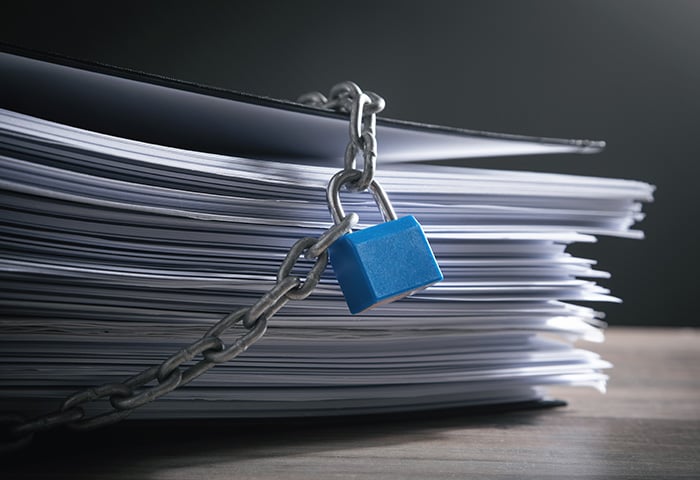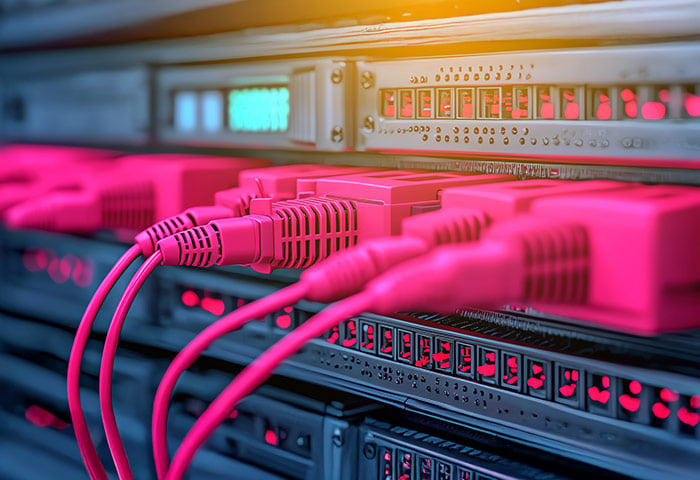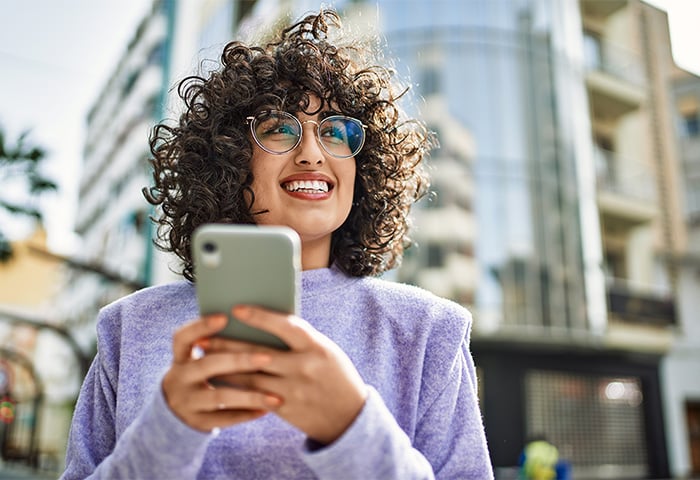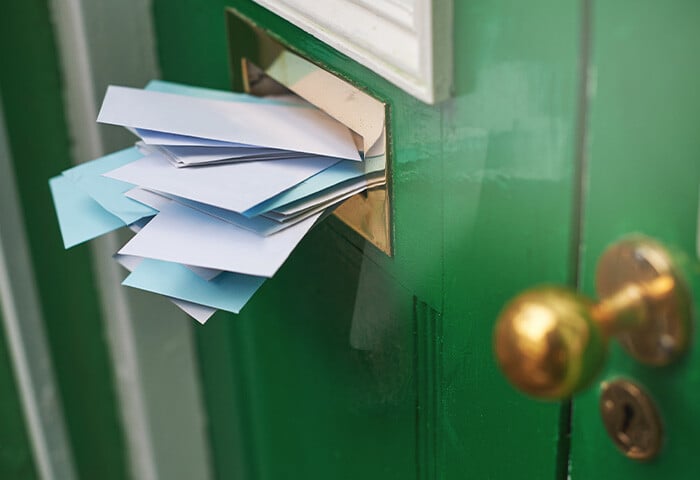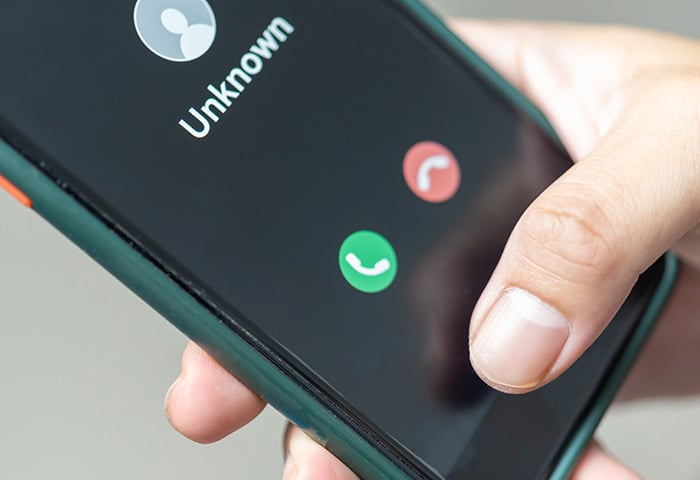What is Signal?
Signal is a free, security-focused messaging app best known for its end-to-end encryption. Only the sender and recipient can read the messages — protecting users from prying third-party eyes. It’s become a popular choice for individuals and organizations that prioritize privacy and want to shield their data from surveillance, tampering, and hacking.
Available on iOS, Android, macOS, Windows, and Linux, Signal offers a range of features, including group chats and video calls. It’s proudly open source, so its codebase is scrutinized and verified by an entire community. And, unlike many mainstream messaging apps, it doesn’t collect your data nor show you ads.
What is the Signal app used for?
Signal is used for communicating with friends, family, associates, or colleagues with maximum privacy. It offers a range of features including video calls, group chats, voice messages, and photos, videos, and file sharing, all protected by end-to-end encryption.
And it’s not just content that’s encrypted — sender details are “sealed,” too (find out more about Signal secure data transit). No messages or metadata are stored on Signal servers, giving users greater data control.
In fact, Signal’s strong security is one of the reasons that its use is apparently widespread among US government officials, a trend that came to light in early 2025 when alleged war plans were apparently leaked on Signal to the journalist Jeffrey Goldberg.
Is the Signal app safe?
With 70 million active Signal users in 2024, Signal is widely regarded as a safe, legitimate app. Thanks to its focus on data encryption, minimal data retention, and open-source development, it’s widely praised for solid security credentials. Prominent tech figures like Edward Snowden, Elon Musk, and Twitter co-founder Jack Dorsey have publicly endorsed the messaging app.
 Signal uses end-to-end encryption in all messages.
Signal uses end-to-end encryption in all messages.
Here are Signal’s notable security and privacy features:
-
End-to-end encryption: Signal provides end-to-end encryption via its cryptographic Signal Protocol, which is so trusted that it’s been “borrowed” by other major apps like WhatsApp. Every message, call, photo, and video sent over the platform is encrypted from sender to receiver, and not even Signal’s own servers can access the content of your conversations.
-
Minimal data collection: Signal collects virtually no personal information from users, with just a phone number needed to sign up. That means you won’t face the usual conundrum of being tempted to sign up with your Facebook or Google credentials (convenient, but potentially risky). And, unlike many similar apps, it doesn’t store your contacts, message history, or metadata.
-
Open-source technology: Signal’s code is fully open to the public, so independent experts can freely inspect and test the app for flaws to verify its standards. With so much transparency and vigilance, hidden vulnerabilities that hackers can exploit are more unlikely.
-
Disappearing messages: Users can set timers for messages to automatically delete after a chosen period. This adds an extra layer of privacy for sensitive conversations, as they literally cease to exist.
-
No ads or trackers: The Signal business model isn’t funded by advertising or your data, so there’s no hidden tracking software to collect information on your online behavior.
-
Strong, proven track record: No significant vulnerabilities or successful hacks against Signal’s core encryption and protocol have been reported to date.
Who owns the Signal app?
Signal is run by the independent non-profit Signal Foundation and funded by donations. This charitable status helps ensure that user privacy remains a top priority, so the service can stay true to its marketing promise of ”No ads. No trackers. No kidding.”
Unlike messaging apps owned by big tech companies — such as WhatsApp, which is part of Meta — Signal has no financial incentive to collect, sell, or share user data. This approach offers an extra layer of trust for users who don’t want their communications commodified and are looking to escape the relentless scrutiny of their digital lives.
By contrast, WhatsApp collects extensive metadata and usage logs, and concerns have been raised that Facebook may be listening to us through our phones.
Why do people use Signal instead of texting?
One of the reasons people use Signal instead of other texting apps is because Signal is available internationally. Privacy is also a huge reason people use the app — you can set the app to prompt you for a PIN every time you open it, and even stickers and emojis are encrypted. Even the incognito keyboard doesn’t learn from your typing style (but watch out for typos, as autocorrection isn’t enabled).
In March 2025, the Signal Foundation President Meredith Whittaker claimed that "Signal is the gold standard in private comms.” For many users, that statement is true.
In addition to being widely heralded as one of the most secure messaging apps, Signal offers other draws:
-
The app features a clean, uncluttered interface, and is available on the most common devices.
-
Group messaging is non-intrusive, as you can only be added to a group with your express consent.
-
Users can set custom timers for how long a message is available. You can choose from a pre-defined list of timers, or set your own custom time.

What are the drawbacks of the Signal app?
No technology is 100% secure, and any solution is only as safe as the people using it. Beyond human fallibility, Signal is also vulnerable to the typical risks of mobile phone communications. Someone can steal your phone while you have the Signal app open or peek over your shoulder as you message.
It’s also an ideal playground for scammers and predators, meaning users have to take the usual precautions of learning how to identify fake text messages, proactively block spam texts, and sniff out the signs of pretexting, a social engineering ploy whereby scammers make up stories to trick you into sharing your details.
Other potential disadvantages of the Signal app include:
-
Phone number dependency: Some privacy-conscious critics are concerned about the use of phone numbers as a signup requirement, as they could be used to determine an account holder’s identity.
-
Limited user base: Not everyone uses Signal, which means you might not be able to reach all your contacts unless they download the app too.
-
Encryption lockout and data loss: If you and a person you’re messaging both lose access to your encrypted conversation, it’s gone forever. Unlike apps like WhatsApp, Signal can’t back up your messages to cloud services like Google Drive or iCloud.
-
Fewer social features: Although Signal is adding more fun features like stickers, colors, and wallpapers, it can feel minimalistic compared to other services.
-
A single point of failure: The centralized structure of the Signal protocol gives it a central point of failure, leaving it vulnerable to a potential attack.
Explore alternatives to the Signal app
There are plenty of alternatives to Signal for staying in touch with friends and colleagues via text chats or video calls. Here are some of the most popular communications platforms to consider — just bear in mind that none of them are serious contenders for Signal’s privacy crown.
Telegram
Telegram offers a sleek, user-friendly experience and is built for big conversations, with support for huge group chats and cloud-based message storage. But while it offers optional end-to-end encryption in “Secret Chats,” most messages live on its servers, which raises a red flag for privacy purists.
WhatsApp
WhatsApp, owned by Meta, offers group chats, voice/video calls, and cloud backups. However, it collects user data and has faced privacy controversies. Users may prefer WhatsApp’s features and its integration with other Meta services. And it’s worth noting that WhatApp is the most popular messaging app in the world, making it a convenient choice (even if that comes at the cost of some privacy).
Messenger
Messenger is designed to sync with Facebook and Instagram for easy chatting, media sharing, and group messaging. It’s familiar, feature-rich, and shines at networking in the Meta universe, but comes with tradeoffs. Messenger collects a significant amount of user data and lacks end-to-end encryption by default.
How to boost your safety on the Signal app
Signal comes with privacy protection built in, but there are some ways to increase your security even further. Here’s how:
-
Verify your connection with safety numbers: Signal allows you to confirm your chat is encrypted with the intended contact by comparing safety numbers. If they match, your chat is encrypted. If not, it may be compromised. To view the safety number of a Signal chat, tap the contact’s name and then View Safety Number.
-
Keep your phone number private: Set up a username and control who can find you with your phone number. You can enable this privacy setting by navigating to Settings > Privacy, then selecting Who can find me by number > Nobody.
-
Enable Registration Lock with a PIN: Protecting your Signal account with a PIN can help prevent unauthorized re-registration from a different device. To enable it, visit Settings > Account, then tap Registration Lock > Enabled. Signal will periodically prompt you to re-enter your PIN as a reminder, so keep it stored safely with a password manager.
-
Choose disappearing messages: You can delete individual messages, but remember that these messages will only be deleted on your own device. Instead, use Signal’s “disappearing messages” feature to automatically remove messages from the entire conversation after a set time.
Secure your device with AVG
Don't just rely on messaging encryption. A VPN offers an extra layer of privacy and security. It helps ensure that your online activities remain more private and shields your personal information from prying eyes. You’ll also be able to enjoy public Wi-Fi more safely and anonymously. Install AVG Secure VPN and start chatting more privately right away.
FAQs
Is Signal the most secure messaging app?
Signal is widely considered one of the most secure messaging apps available. By default, all messages are encrypted end-to-end, meaning that only you and your contact can read them. Its open-source Signal Protocol is trusted and verified by a community of experts, and the app apparently collects virtually no data, reflecting its strong commitment to user privacy and transparency.
Does Signal show your phone number?
Yes, Signal requires a phone number to register, but it doesn’t share your number publicly, and you’re in charge of who can see it. By default, your number is never visible to anyone who doesn’t have you saved in their contacts. For added privacy, set up a username and control who can find you by searching your number.
What information does Signal collect?
According to Signal Support on Signal and GDPR, “Signal cannot sell, rent, or monetize your data or content in any way — ever.” Signal claims that it’s not designed to collect or store sensitive information, and that it gathers only what it needs to function: Your phone number (plus the date you registered). Signal also claims that it doesn’t track your messages, contacts, groups, or how you use the app, and that your data stays off its servers.







